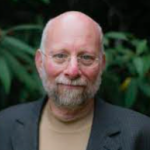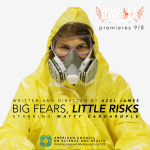E-cigarettes can help smokers abandon their deadly habit. Unfortunately, that message has been buried under a mountain of anti-vaping messaging promoted by tobacco researchers and reporters.
Policy & Ethics
Cato Institute's Dr. Jeffrey Singer (also an ACSH advisor) published an opinion piece in The Detroit News arguing that laws that restrict drug paraphernalia do more harm than good. "If states want to get serious about reducing the risk of harm from using illegal drugs, lawmakers should repeal their drug paraphernalia laws." We couldn't agree more. Harm reduction is one of the central tenets of ACSH.
As the Supreme Court’s decision on Roe v. Wade took all of the oxygen out of the media greenroom, another SCOTUS decision on our healthcare, in this case, over insurance costs, was pretty much overlooked. That’s too bad because, in 2019, it involved slightly more than 6% of that budget – for individuals with end-stage renal disease (ESRD).
ACSH advisor Dr. Robert Popovian's commentary on how biomedical innovation remains critically important, despite advances against the Covid pandemic.
Last time, we discussed head transplants and how philosophers are gearing up to address the ethical implications. Many pages and scholarly brain waves were spent in the Journal of Medicine and Philosophy: A Forum for Bioethics and Philosophy of Medicine. What use were these ruminations? Are they valid considerations, even if the basic scientific premise is faulty? Or is this another example of asking how many angels can dance on the head of a pin? More importantly, what does this tell us about our capacity to resolve complex bioethical issues around new biotech?
Has the FDA lost its mind or just the ability to use it? ACSH advisor Dr. Jeffrey Singer discusses banning of Juul e-cigarettes.
As divisive as we are, I think we can all agree that our institutions and corporations are not held accountable for their actions. To my right are those concerned with the CDC, WHO, and social media censorship; to my left are those who want to hold the Bigs, tobacco, or food, and federal and state policy accountable. Governmental agencies are hard to pin down because the bureaucracy means everyone and no one is to be held responsible. Because they are legal “individuals,” corporations can have their feet held to the fire by lawsuits. But thanks to a rivalry between Delaware and Texas over who is the most “corporate friendly,” we have corporate’s “Get Out of Jail” free card – the Texas two-step.
Once upon a time, novel conceits of humanoid creation were strictly relegated to the world of fantasy or the imagination. Frankenstein’s monster resided peacefully alongside Mr. Hyde and the Headless Horseman in the pages of storybooks, and the Golem remained buried in Talmudic lore. If there was any moralizing, it was – don’t go there. No longer. Last month the Journal of Medicine and Philosophy devoted an entire issue to the ethics and philosophy of head transplants.
What does this recent symposium tell us about our moral and ethical compass?
The evidence is in: genetic engineering promotes sustainable farming, vaccines save lives, and nuclear energy is our best hope of powering society in a changing climate. But the question remains, how do you convince a generally skittish public to embrace the science behind these technologies? Our answer: make a movie.
Some thoughts on the "debate" between Drs. Jeff Singer and Ardianne Fugh-Berman. Such as it was. The video is now available. Have a strong stomach.
Two thousand people a week are dying from (almost entirely) illegal street drugs. While at the same time prescriptions for legal pain medications have been cut by half in the past decade. The FDA’s solution? Postage-paid envelopes for people to return the extra pills they don't have. It's almost funny. Just don't laugh until it hurts.
A few years ago, transgender athlete Lia Thompson was the 462nd-ranked men’s swimmer in the country. Today, Thompson is No. 1 nationally in the women’s division. Does Lia have an unfair advantage? What does the science say?











